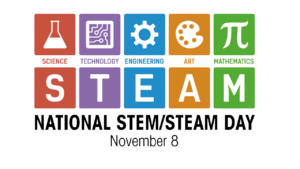In a previous post entitled Educating Our Children: The Earlier the Better, I quoted Nicholas D. Kristof, who wrote, “Growing mountains of research suggest that the best way to address American economic inequality, poverty and crime is — you guessed it! — early education programs, including coaching of parents who want help. It’s not a magic wand, but it’s the best tool we have to break cycles of poverty.” [“Do We Invest in Preschools or Prisons?” New York Times, 26 October 2013] Michael D. Rich, president and chief executive officer of the RAND Corporation, agrees with Kristof about the importance of pre-school education. “As schoolhouse doors swung open this fall,” he writes, “some kindergarten students were already at a disadvantage, victims of the so-called readiness gap that separates children who have access to early education resources from those who do not. These resources include preschool, written materials in the home, and technology.” [“To Eliminate the “Readiness Gap,” Preschool Is Just the Beginning,” Rand Review, Fall 2013] He continues:
“Research conducted by RAND and others shows that when children are given educational opportunities during the formative preschool years, they fare better in kindergarten and beyond. Research also shows that because kids from low-income families may lack these early educational opportunities, they are more likely to be impeded by the readiness gap. Eliminating the gap is a worthy goal, one that has been embraced by successive U.S. presidents, the most recent example being President Barack Obama’s call for high-quality pre-kindergarten education for all American four-year-olds. Though this priority has yet to gain traction on Capitol Hill, it has transcended partisanship at the state level, where policymakers of all political parties have pursued the goal of universal preschool.”
Rich goes on to note that other countries appear to appreciate the importance of pre-kindergarten education more than Americans. “The importance of early childhood education is recognized globally,” Rich writes, “and some countries are close to attaining the goal of universal preschool enrollment for four-year-olds. Unfortunately, the United States is not one of them.” Where does the United States rank? According to Rich, the United States ranks 28th among the 38 countries studied. Countries at the top of the rankings include “France, the Netherlands, Spain, and Mexico [which all] had enrollment rates of 95 percent or higher.” Sarah Tan reports that 63 percent of American children are not enrolled in pre-school. [“New report highlights importance of early childhood education,” The Times-Picayune, 3 November 2013] According to Tan’s article, a new study agrees with almost every point made by Kristof and Rich. She writes:
“Studies have shown that a child’s enrollment in preschool during these early years is pivotal to development and success later in life. Children who enter kindergarten unprepared for learning at that level are more likely to lag as they progress through elementary school. ‘High-quality early care and education play an important role in preparing children for success and lead to higher levels of educational attainment, career advancement and earnings,’ the study states.”
Rich observes that we have known about the importance of pre-school programs for over a dozen years. He reports, “A 1998 RAND report found that early educational interventions can yield benefits in the areas of emotional and cognitive development, educational achievement, economic well-being, and health.” About a decade later another RAND report “confirmed that children from economically disadvantaged households are less ready than their better-off peers to start school and that the gap persists into elementary school. By second and third grade, the readiness gap becomes an achievement gap, as measured by statewide, standardized tests.” In the earlier post mentioned above, I cited a study conducted by researchers at Stanford that concluded that repeated exposure to a large vocabulary is an important differentiator between successful students and underachievers. It also concluded that children from wealthier families had a much greater exposure to words than children from poor families. The Stanford study conclusions complement those from the RAND studies and Rich makes note of it and other recent research. He writes:
“Lack of preschool education opportunities is not the only factor contributing to the readiness gap and its disproportionate impact on children from low-income families. Research by Susan B. Neuman at the University of Michigan found, for example, that children from low-income neighborhoods had less access to written materials at home than did their peers in middle-income neighborhoods. New research by Anne Fernald at Stanford University has found a language gap as early as 18 months, owing to the fact that higher-income parents typically speak much more to their children, equipping them with larger vocabularies.”
Rich goes on to discuss one other factor that differentiates educational opportunities between rich and poor children: technology. He explains:
“According to the U.S. Census, just 47 percent of children ages three through five in families with annual incomes of less than $25,000 have access to computers at home, compared with 90 percent in families with annual incomes of $100,000 or more. This technology gap could contribute to the overall readiness gap. The significance of this gap in technological literacy sparked interest at Pittsburgh-based PNC Financial Services Group, which has asked RAND to explore the issue and to examine strategies that will improve access to technology for children from low-income families. Among other things, RAND researchers will be looking at how early childhood education can be used to raise technological literacy.”
This holiday season you should take the conclusions of these numerous studies into consideration as you shop for toys to donate to underprivileged children. There are a number of toys on the market that can help improve a child’s vocabulary or increase their exposure to technology. Another benefit of donating such a toy for pre-schoolers is that parents are also exposed to these learning tools. In the earlier post, I cited Lynn Chwatsky, Vice President of Initiatives and Partnerships, Community Engagement with the Sesame Workshop. She insists that even if a parent doesn’t believe they are a science or math person, their engagement can help their children with these subjects through play. There is a lot that can be gained when parents and children play together. Perhaps the biggest benefit is that parents are more likely to remain interested in what their child learns as they enter school. Rich concludes:
“Study after study shows that early childhood education pays off, yet adequate public commitment to preschool remains elusive. Preschool for four-year-olds should be as common as kindergarten is for five-year-olds. Ultimately, the goal should be the elimination of the readiness gap through expanded access to preschool, written materials in the home, and technology that could improve delivery of such materials. My hope is that research by RAND and others will continue to inform this debate.”
An organization called “Ready to Learn DC,” notes “that the capacity of the brain to absorb new learning peaks at age 3.” [“Why is Early Childhood Education Important?]” They also produced a video explaining why early childhood education is important. When children begin school with a significant disadvantage, their dreams may be limited and their chances of achieving even those limited dreams reduced. I add my voice to those above in supporting pre-school programs and hope you too will push our politicians to help ensure that America remains a land of dreams for our youngest citizens.




